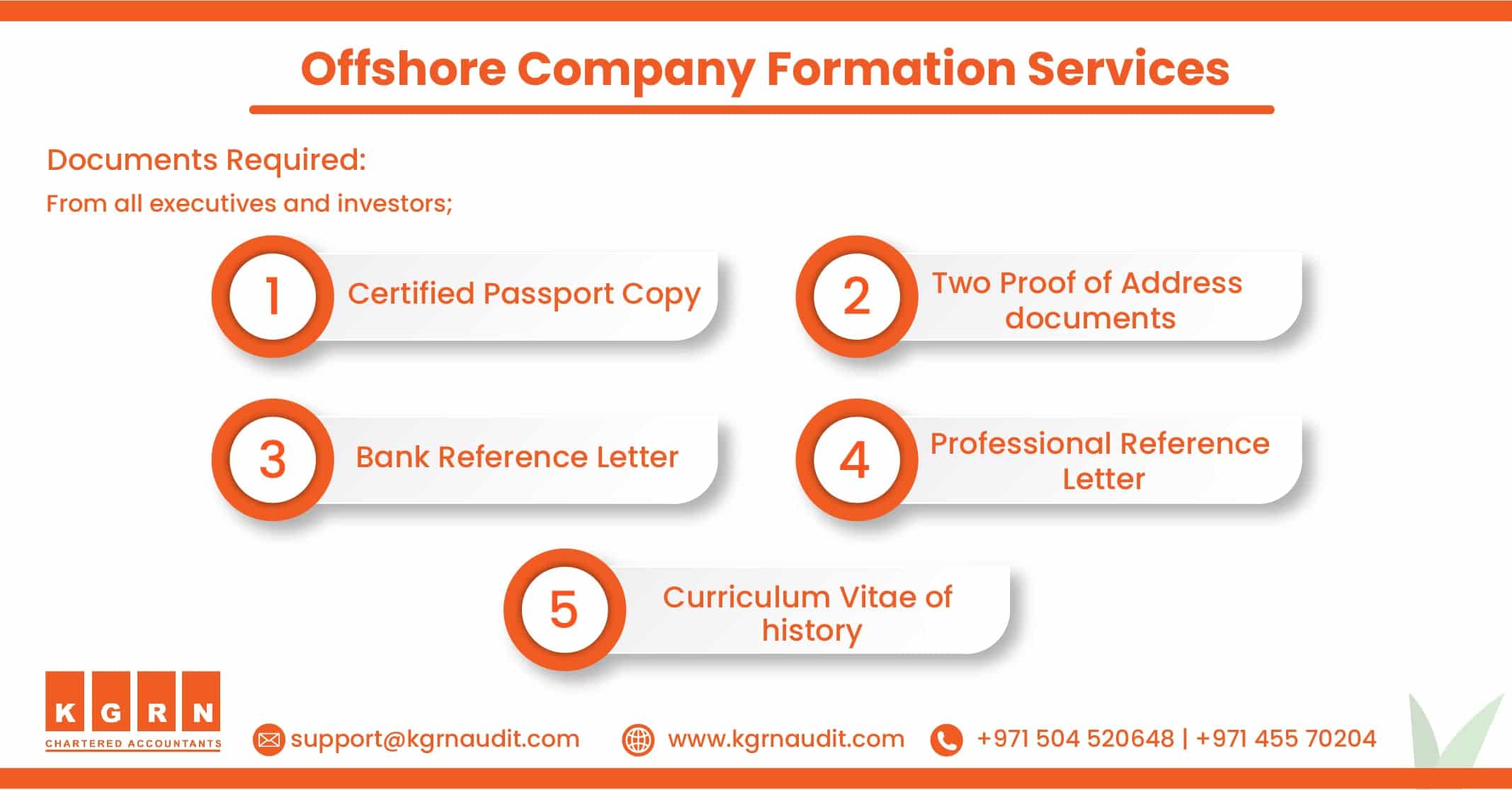Offshore Company Formation for Confidentiality and Asset Independence
Offshore Company Formation for Confidentiality and Asset Independence
Blog Article
Browsing the Globe of International Service: Insights on Offshore Company Formation
Offshore Company Formation presents a critical avenue for global service operations. It supplies noteworthy benefits, such as tax obligation optimization and boosted privacy. The process is not without its obstacles. Recognizing the complexities of different territories and regulative requirements is important. As services consider these options, the actions involved can significantly influence their long-term success. What are the crucial variables that can bring about effective overseas administration?
Understanding Offshore Companies: Interpretation and Objective
Offshore firms have ended up being a centerpiece in worldwide organization discussions due to their one-of-a-kind lawful and monetary structures. These entities are developed in territories beyond the proprietor's country of house, typically with desirable regulatory environments. Commonly, offshore business serve numerous objectives, such as asset protection, tax optimization, and boosted privacy. They can operate in multiple industries consisting of finance, innovation, and profession, giving flexibility for global operations.The specifying attribute of an offshore Company is its capacity to perform service internationally while taking advantage of reduced tax obligations and regulatory concerns. This structure interest capitalists and business owners looking for to diversify their profiles and handle threats effectively. Additionally, several overseas jurisdictions supply incentives to attract foreign financial investment, bring about a rise in the Formation of these business. Comprehending the definition and purpose of overseas firms is necessary for steering via the complexities of international commerce and funding flow.
Key Benefits of Offshore Company Formation
The Formation of an overseas Company offers numerous engaging advantages that attract business owners and financiers alike. Among the primary benefits is tax optimization; numerous jurisdictions offer beneficial tax obligation prices or exceptions, allowing services to maximize earnings. Additionally, overseas companies typically appreciate higher privacy, as lots of territories have strict personal privacy regulations safeguarding the identifications of Company owners and shareholders.Another substantial advantage is property defense. Offshore entities can guard possessions from political instability and economic slumps in the proprietor's home nation. In addition, these business can assist in global trade, offering very easy accessibility to global markets and streamlining cross-border transactions.The flexibility in business structure additionally attract company owner, as offshore companies can be customized to fulfill particular operational demands. In general, the tactical Formation of an overseas Company can lead to enhanced economic security, operational effectiveness, and a durable international existence.

Usual Challenges in Establishing Offshore Entities
Developing overseas entities offers a number of challenges that services must navigate. Secret issues consist of governing compliance, which can differ substantially across jurisdictions, and the effect of cultural differences on operations. Additionally, organizations must think about the threats and prices related to keeping an overseas visibility, which can influence general feasibility.
Regulative Conformity Issues
Steering regulative compliance issues postures considerable challenges for services when they look for to establish offshore entities. Each territory has its own collection of laws and guidelines, which can vary commonly and might be challenging to browse. Companies commonly face difficulties relevant to tax compliance, anti-money laundering laws, and reporting demands. In addition, modifications in global tax legislations can develop uncertainty, making it important for organizations to stay updated on conformity commitments. Failing to stick to these policies can cause extreme penalties, including fines and reputational damage. Understanding the lawful structure and involving with neighborhood specialists is important for successful overseas operations, guaranteeing that businesses can run within the boundaries of the regulation while maximizing their global strategy.
Social Distinctions Impact

Expense Factors To Consider and Threats
Steering with the economic landscape of overseas entity Formation provides different cost considerations and fundamental dangers. Preliminary configuration expenses typically include legal fees, enrollment expenditures, and conformity fees, which can build up considerably. Additionally, recurring upkeep costs such as annual costs and audit services should be factored in. Furthermore, fluctuating governing settings in different jurisdictions posture dangers, potentially bring about unanticipated expenses or legal difficulties. Organizations may additionally come across challenges connected to taxation, financial, and reputational concerns, which can affect profitability and functional efficiency. Potential business owners must carry out thorough due diligence and economic forecasting to reduce these threats and guarantee sustainable development. Recognizing these cost considerations is essential for successful offshore service endeavors.
Steps to Set Up an Offshore Company
Developing an overseas Company involves a number of essential steps that require cautious factor to consider. Trick factors include choosing the ideal territory and guaranteeing compliance with local policies, together with gathering needed documents. Recognizing these components is essential for a successful offshore business setup.
Choosing the Right Jurisdiction
Picking the appropriate territory is important for anybody wanting to establish an overseas Company, as it can significantly influence the organization's lawful responsibilities, tax obligation obligations, and functional convenience. Different elements should be taken into consideration, consisting of the political stability, regulatory setting, and tax incentives supplied by prospective jurisdictions. Popular options typically include nations with beneficial tax obligation routines, such as the British Virgin Islands or Cayman Islands, due to their reduced or no tax obligation rates. Additionally, the convenience of operating and the reputation of the territory can influence financier confidence and market accessibility. Ultimately, an educated decision based upon comprehensive study will assure the offshore Company is placed for long-lasting success and conformity with worldwide criteria.
Needed Documents and Conformity
When setting up an offshore Company, comprehending the necessary paperwork and conformity requirements is vital to assure a smooth process. Secret records generally consist of a certification of incorporation, a memorandum and posts of organization, and proof of identity for shareholders and supervisors. Some territories may need extra details, such as organization plans or bank recommendations. Conformity with neighborhood regulations is vital, which typically entails assigning a registered agent and maintaining an authorized office. Routine reporting and adherence to tax responsibilities have to additionally be considered. Failure to follow these requirements can result in penalties or even dissolution of the Company. Extensive prep work and examination with lawful specialists can aid browse these intricacies successfully.
Picking the Right Territory for Your Offshore Company
Exactly how can one identify the most suitable jurisdiction for an overseas Company? Choosing the ideal jurisdiction requires careful factor to consider of numerous variables. Initially, the lawful and tax obligation setting plays a crucial function; jurisdictions with favorable tax obligation regimens may enhance business productivity. Furthermore, the political stability and economic environment of a location can influence lasting organization viability.Another important aspect is the schedule of financial solutions and banking facilities, which promote smooth operations. Potential company owner must likewise consider the simplicity of operating, consisting of the speed of enrollment and the clarity of regulations.Furthermore, language obstacles and cultural distinctions can affect procedures; for that reason, straightening with a jurisdiction that straightens with company objectives and personal comfort is essential. Eventually, comprehensive research and specialist advice can assist business owners in making a notified choice that aligns with their calculated goals.
Conformity and Regulatory Considerations

Finest Practices for Managing an Offshore Service
Managing an offshore organization requires calculated preparation and meticulous execution to enhance performance and mitigate dangers. First, establishing a robust compliance framework is important to browse differing regulations across jurisdictions. Regular audits and risk evaluations aid recognize potential vulnerabilities.Moreover, leveraging local experience through partnerships with regional offshore company formation experts can boost functional efficiency and cultural understanding. Using modern technology, such as cloud-based monitoring systems, streamlines communication and data management, allowing much better decision-making. Furthermore, preserving transparent financial records and making sure timely tax filings are important to support the Company's integrity. Investing in staff training and development promotes a competent workforce, promoting innovation and adaptability.Finally, developing clear efficiency metrics and crucial performance indicators (KPIs) aids analyze organization development and notify tactical adjustments. By sticking to these finest practices, companies can properly manage their offshore procedures, ensuring long-lasting success and sustainability in a competitive global industry.
Often Asked Questions
What Is the Cost of Creating an Offshore Company?
The price of developing an offshore Company varies widely depending upon territory, legal needs, and services required. Typically, expenses can vary from a few hundred to numerous thousand bucks, including enrollment, compliance, and yearly fees.
The length of time Does It Require To Establish an Offshore Entity?
The moment required to establish an offshore entity differs considerably, commonly ranging from a couple of days to a number of weeks (offshore company formation). Factors influencing this period include territory, required paperwork, and the efficiency of the provider included
Can People Form Offshore Companies Without a Service Partner?
Individuals can undoubtedly form overseas firms without a company partner. Several jurisdictions enable single-member entities, encouraging entrepreneurs to develop and handle their businesses separately, while still taking advantage of potential tax benefits and legal securities.
Exist Any Kind Of Tax Advantages for Foreign Investors?

What Kind Of Businesses Generally Make Use Of Offshore Business?
Offshore companies are regularly used by numerous markets, including modern technology, ecommerce, and finance. These entities often offer purposes such as possession protection, tax obligation optimization, and personal privacy, attracting both specific entrepreneurs and international corporations. Offshore business have actually ended up being a focal factor in worldwide organization discussions due to their unique lawful and economic frameworks. They can operate in numerous industries consisting of trade, financing, and modern technology, giving adaptability for global operations.The defining attribute of an overseas Company is its ability to carry out organization internationally while benefiting from decreased tax obligation responsibilities and governing burdens. Additionally, offshore business usually enjoy greater confidentiality, as lots of territories have rigorous personal privacy regulations shielding the identities of Company proprietors and shareholders.Another substantial benefit is property defense. These firms can facilitate international trade, offering simple accessibility to worldwide markets and streamlining cross-border transactions.The adaptability in company framework additionally allures to organization proprietors, as overseas business can be tailored to fulfill details functional requirements. Picking the appropriate territory is critical for anyone looking to set up an offshore Company, as it can significantly impact the business's legal responsibilities, tax obligation obligations, and operational ease.
Report this page